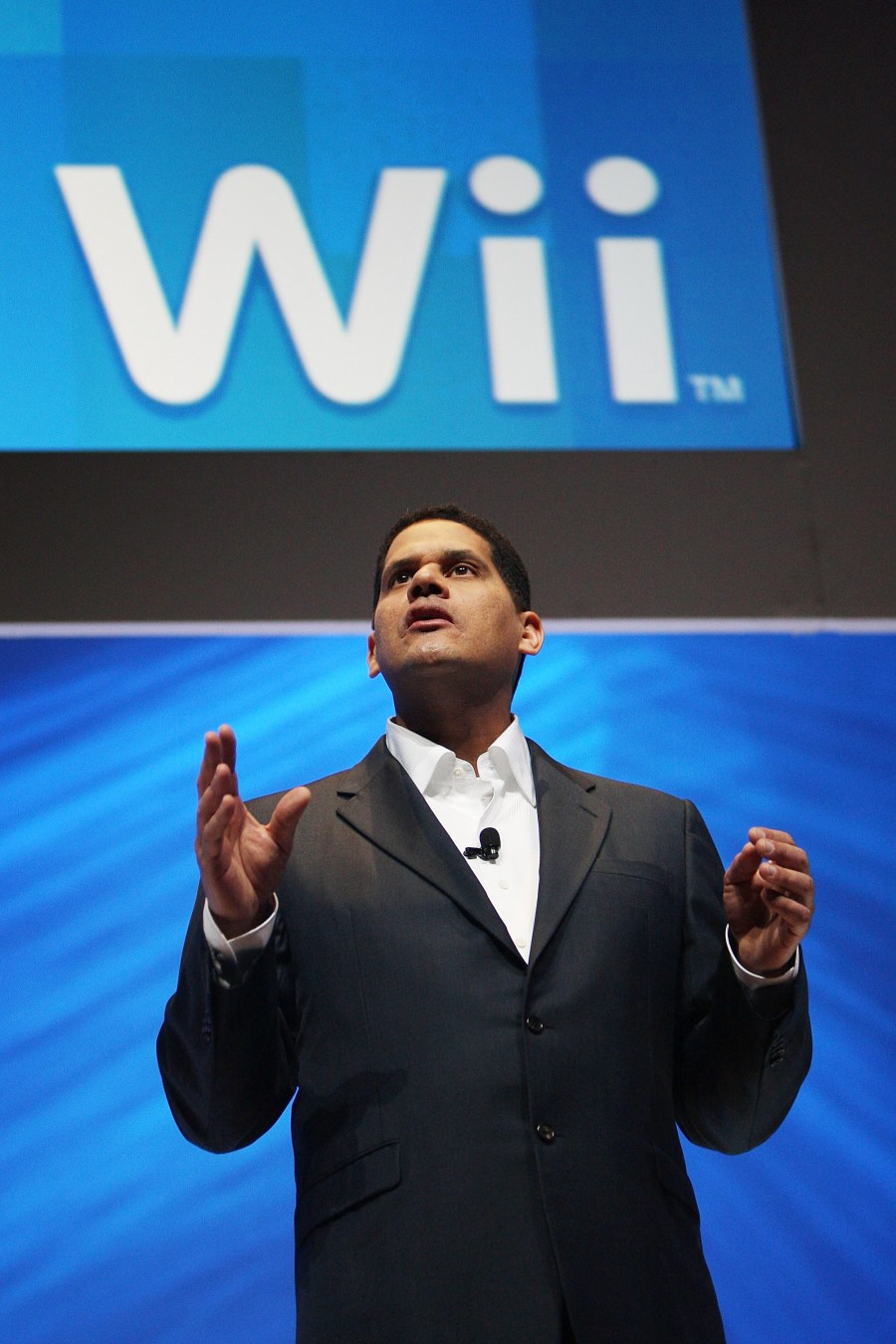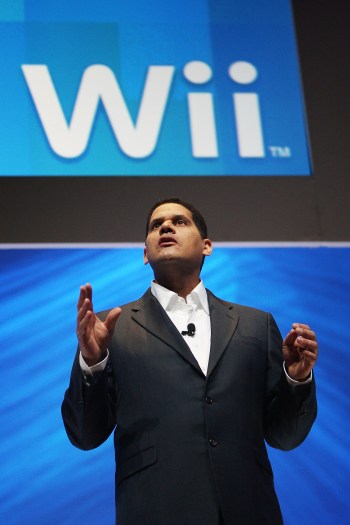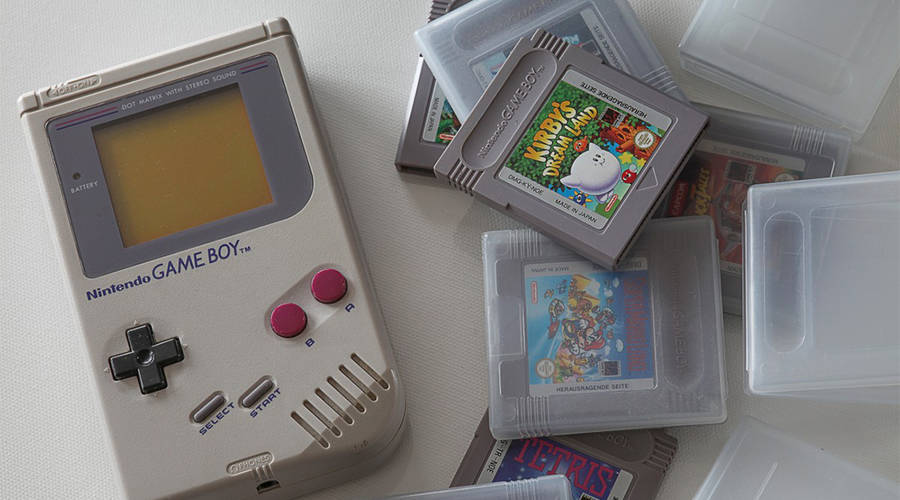Reggie Fils-Aimé believes the best video game innovations are carried by one simple thing — a good game

Video games are more technologically sophisticated than ever these days — virtual reality headsets, augmented reality integration and some of the most powerful and realistic graphics yet.
At the end of the day, a good, innovative video game needs one important element. According to industry veteran Reggie Fils-Aimé, former president of Nintendo of America, it’s simply to make the game good and fun.
Fils-Aimé retired in 2019 but reflects on these ideas and his history of disrupting the gaming sector in his new autobiography, “Disrupting the Game: From the Bronx to the Top of Nintendo.”
Marketplace’s Kimberly Adams spoke with him about where the innovation is happening in gaming right now. The following is an edited transcript of their conversation.
Reggie Fils-Aimé: The key innovation will come from smaller, independent developers. These are developers who are finding ways to deliver just outstanding content, oftentimes onto your mobile phone, with greater access. These are the developers who are taking more risks in coming up with new ideas. [A small example] in the gaming space, but not a traditional game, you look at what Wordle has been able to do, the word puzzle. It’s taken popular culture by storm and it was created by a single individual.
Kimberly Adams: Staying on the topic of innovation, there’s some discussion about integrating new technology into the next generation of games, like blockchain and cryptocurrencies, maybe creating ecosystems where gamers can make money just by playing the game or harvesting digital items. Skeptics are worried about potential scams or exploitative loopholes. If we bring these systems into games, do you think there’s a way to integrate that kind of technology constructively here?

Fils-Aimé: I really do. And I say this because not all that long ago there were similar concerns about free-to-play games, games where you would start playing a game and then need to either invest significant time or small amounts of money in order to progress in the game. And there was very strong negative initial reaction to this concept. But as developers figured out the right balance, in encouraging players to play through the game in order to progress or to spend small amounts of money, developers found a way to get that balance right and to deliver some exceptional content. But there’s a big caveat. And the caveat is that it needs to be done smartly, it needs to be incorporated into the game at the very beginning, versus something that feels like a bolt-on attachment that really doesn’t serve the player. And it needs to offer some compelling and unique benefit to the player that they can’t get today and exist in games.
Adams: You know, when I was a kid, you could borrow games from friends, you could rent them, you could buy them used because they were physical cartridges, and that allowed people to access games they might not otherwise be able to afford. With games now being digital or streamed more often, how do we maintain that kind of access to the best games across different economic groups?
Fils-Aimé: You know, today, physical games still account for about 40% of the software being sold. And this is specifically with gaming-dedicated consoles like the Nintendo Switch, like the Xbox and PlayStation devices. So it’s still quite significant. But the point that you’re making, which is absolutely true, the industry needs to make sure that compelling software is being provided or offered at a range of different price points, with a range of different accessibility in order to continue growing. This is done, for example, on the Nintendo Switch, that as long as another individual has their own Nintendo Switch, you can share the game electronically, as long as you do or as long as you have the game downloaded on your system. In the work I do now in retirement, working with independent developers and helping them create compelling content and typically at lower price points, it’s a key need to make sure that the accessibility to great content is as broad as possible.
Adams: You’re a bit of a rarity, in terms of diversity and leadership in the gaming industry. Have you seen any movements to improve that? What do you think needs to happen to change what the gaming industry looks like?
Fils-Aimé: The progress, unfortunately, has been quite slow. Leaders need to focus on this issue of diversity thoughtfully and with purpose. It’s a focus on making sure candidates’ slates for key jobs represent a diverse background and set of life experiences. It needs to make sure that mentorship opportunities exist, training and development opportunities exist. It’s real work that needs to be done and it needs to be done and endorsed by the senior most leaders in any organization.
Adams: What was your favorite game as a kid?
Fils-Aimé: You know, as a kid … and let me reframe the question, maybe: As a young adult, I had the first dedicated gaming system in my own home, which was a Super Nintendo Entertainment System, my favorite game was The Legend of Zelda: A Link to the Past. It’s a game that drew me in [with] a combination of puzzle-solving and adventuring. And to this day, I’m a passionate lover of The Legend of Zelda series. So that’s the game that really changed it for me as I went through my own personal journey of gaming, and it was serendipity that it just happened to be a Nintendo franchise, and in a game where I would continue to invest my time and effort.
Adams: And so what’s your favorite game now?
Fils-Aimé: Ironically, it continues to be a Legend of Zelda game, Legend of Zelda: Breath of the Wild, which was launched about five years ago on the Nintendo Switch. I was fortunate to be part of that launch and it’s a game that I have invested hundreds of hours into and to this day, about every three months, I go back and pick it back up and play again. So I would say that is my favorite game of all time.
Related Links: More insight from Kimberly Adams
Reggie has much to say about about company culture in his new book. The video game publisher and developer Activision Blizzard is still struggling with the ongoing fallout of the accusations of racism, sexual harassment and assault at the company.
And Microsoft is still on track to acquire Activision Blizzard, after shareholders approved the merger last month. But, as reported by Bloomberg and others, that merger is still pending review by the Federal Trade Commission.
In his book, Reggie also talks about the rollout of products like Nintendo’s Wii console and what it was like getting people to virtually play golf and bowl and swing the “Wiimote” controller around their living rooms.
Which brings me to a review in The New York Times’ Wirecutter, highlighting a problem the company can’t quite seem to solve. The new Nintendo Switch Sports game that came out this weekend has a similar challenge as the Wii — or, I guess, it’s the users that are the real problem — people keep accidentally flinging their motion controllers into their TVs.
Whoops.
The future of this podcast starts with you.
Every day, the “Marketplace Tech” team demystifies the digital economy with stories that explore more than just Big Tech. We’re committed to covering topics that matter to you and the world around us, diving deep into how technology intersects with climate change, inequity, and disinformation.
As part of a nonprofit newsroom, we’re counting on listeners like you to keep this public service paywall-free and available to all.
Support “Marketplace Tech” in any amount today and become a partner in our mission.


















